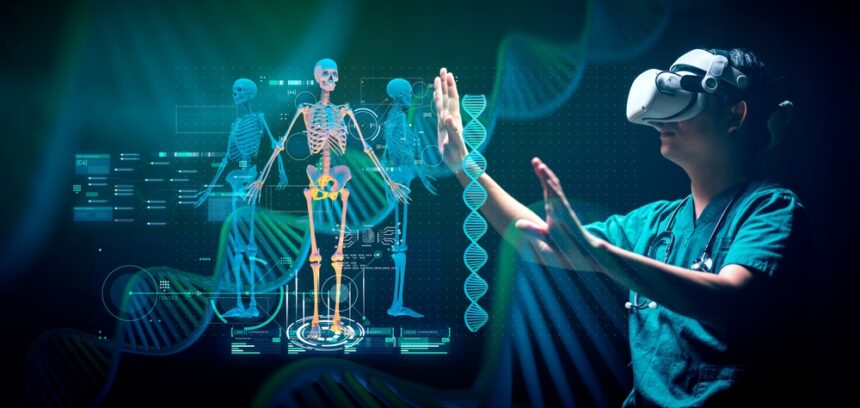Introduction
Artificial intelligence in healthcare is no longer a distant dream. It’s here, transforming diagnostics, patient monitoring, and hospital operations. By leveraging AI technologies, healthcare providers are achieving more accurate results, improved efficiency, and better patient outcomes. This article delves into the current applications, challenges, and opportunities of AI in healthcare, with insights tailored for professionals and stakeholders.
How Artificial Intelligence is Transforming Healthcare
- AI in Diagnostics
Tools like IBM Watson Health and Google’s DeepMind can analyze medical imaging data with remarkable accuracy. For instance, these systems detect early-stage cancers and eye conditions faster than conventional methods. - AI in Patient Monitoring
Wearable devices, such as the Apple Watch and Fitbit, use artificial intelligence to track vital signs, providing real-time insights to healthcare providers. These tools are essential for managing chronic conditions like heart disease and diabetes. - AI in Hospital Operations
Artificial intelligence streamlines hospital management, including patient admissions, resource allocation, and discharge planning. AI-driven tools reduce manual errors and improve overall efficiency.
The Role of AI in India’s Healthcare Landscape
- Telemedicine with AI
Platforms like Practo and Apollo TeleHealth use AI-driven chatbots to facilitate virtual consultations, especially in rural areas. - Government Support for AI in Healthcare
Initiatives by NITI Aayog focus on integrating artificial intelligence in healthcare to enhance diagnostics and accessibility for underserved populations.
Ethical and Technical Challenges in AI Implementation
- Data Privacy and Security
With vast amounts of sensitive patient data, healthcare systems must ensure robust security measures to prevent breaches. - Bias in AI Algorithms
Developers need to address potential biases in AI models to ensure equitable healthcare delivery.
Future Trends in Artificial Intelligence in Healthcare
- AI-Assisted Surgeries
Robots, like the da Vinci Surgical System, assist surgeons in performing complex procedures with precision. - Pandemic Preparedness
Artificial intelligence plays a pivotal role in predicting and managing pandemics by analyzing large datasets and trends.
Conclusion
Artificial intelligence in healthcare is revolutionizing the industry, from diagnostics to hospital operations. While challenges exist, the future holds tremendous promise for AI in creating a more efficient and accessible healthcare ecosystem.



Leave a Reply